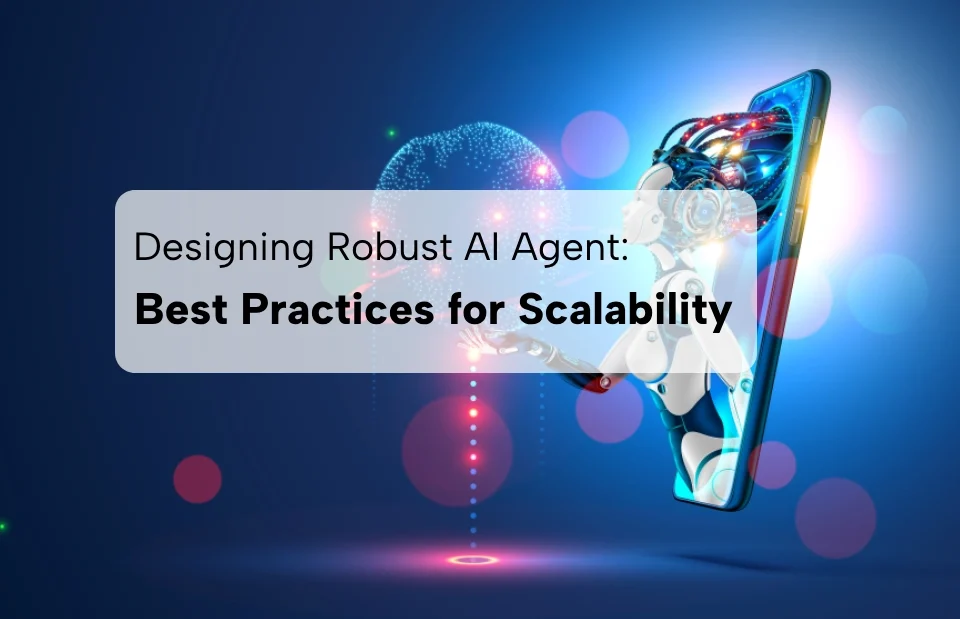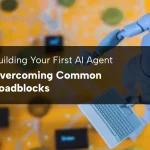Today’s customers expect quick, round-the-clock help that traditional support struggles to keep up. Businesses are turning to a new solution: conversational AI agents. These AI-driven helpers simulate human support and scale it across channels. Analysts predict a massive shift underway. By 2025, 70% of customer interactions will involve AI. In this guide, we explain how a conversational AI agent improves support in multiple industries and how you can implement one to stay ahead.
Table Of Contents
Key Takeaways
- 24/7 instant support is possible with conversational AI agents. Customers get help anytime without waiting.
- Businesses cut support costs by up to 30% using AI-driven virtual agents. Automation handles routine queries efficiently.
- Intelligent virtual agents add value across e-commerce, healthcare, finance, travel, and more industries. They adapt to each sector’s needs.
- AI Workfllow makes deploying an AI customer support agent fast and simple. The platform streamlines setup, training, and integration.
Understanding Conversational AI Agents
In simple terms, a conversational AI agent is an AI system that chats with customers. You can picture it as an AI customer support agent that simulates a human helper. These intelligent virtual agents use natural language processing to understand questions and provide answers. They don’t rely on fixed scripts alone, unlike chatbots. They learn from data and past interactions. This means responses feel more natural and helpful to users.
Unlike basic chatbots with limited replies, conversational AI agents use machine learning to improve over time. They can handle free-form questions and even detect user sentiment. If a query is complex, the agent can escalate it to a human representative. The result is a seamless blend of AI efficiency and human touch in customer service.
(Image suggestion: Diagram of a customer question flowing to an AI agent, which answers or hands off to a human agent for complex cases.)
Benefits of Conversational AI Agents in Customer Support
-
24/7 Instant Support
Customers get help at any hour. There’s no waiting for business hours or live staff. A conversational AI agent can greet users and answer questions at 3 AM just as easily as at 3 PM. It responds within seconds, reducing customer wait times dramatically. This constant availability boosts customer satisfaction.
-
Consistent and Accurate Responses
Human service quality can vary, but an AI agent as a Customer support executive has the capability to give consistent answers. It always provides the correct policy info or troubleshooting steps. The conversational AI agent doesn’t get tired or stressed. Every customer receives the same attentive service, ensuring a reliable support experience every time.
One of our key observations in human-enabled support chats is the high Turnaround Time (TAT) for customer queries. Since human support agents often handle multiple conversations simultaneously, response latency naturally increases. This delay can frustrate customers, prolong the time to resolution, and in many cases, lead to customer drop-offs.
-
Scalability for Peak Times
Handling sudden spikes in queries is a breeze with AI. Intelligent virtual agents can chat with many customers simultaneously. They don’t get overwhelmed by volume. For example, during holiday sales or big events, the AI can manage thousands of inquiries at once. This scalability means no customer is turned away or left waiting during peak times.
-
Cost Savings and Efficiency
Automating routine support tasks saves money. Companies using AI virtual agents have cut 30% customer service costs significantly. Fewer live agents are needed for simple questions, which lowers labor costs. The team can also handle more queries overall. This efficiency allows support departments to do more with less, reallocating human agents to high-value or complex issues. In the long run, an AI customer support agent is a cost-effective investment that can deliver quick ROI through operational savings.
-
Personalized Customer Experiences
Beyond speed and cost, AI agents can personalize interactions. They can reference a customer’s order history or preferences when answering. This makes the support feel tailored to the individual. For instance, an agent might recommend relevant products based on browsing behavior. Such personal touches enhance the customer experience and drive engagement. The conversational AI agent essentially learns about users over time to serve them better.
Use Cases of Conversational AI Agents Across Industries
Conversational AI agents are benefiting organizations across many sectors. Here’s how different industries leverage these AI-powered virtual agents:
-
E-commerce and Retail
Online retailers rely on intelligent virtual agents for sales and support. An AI agent on an e-commerce site can answer product questions, check item availability, and guide shoppers through checkout. It handles “Where is my order?” queries instantly by integrating with order tracking systems. Shoppers get instant help with returns, shipping issues, and product recommendations, improving their buying experience and reducing cart abandonment.
-
Healthcare
Healthcare providers deploy AI customer support agents to assist patients and streamline operations. A hospital’s virtual agent can help schedule appointments, answer FAQs about services, and provide pre-care instructions. Patients receive quick, accurate information about clinic hours or insurance coverage. These agents can also remind patients about upcoming appointments or medication refills. By automating routine queries, healthcare staff have more time for critical patient care, and patients feel supported outside of office hours.
-
Finance (Banking & Insurance)
Banks and insurance companies implement conversational AI agents for customer service. In finance, a conversational AI agent can help clients check account balances, reset passwords, or get a quote instantly. These agents provide secure assistance by verifying user identity through simple questions or one-time pins. They handle everyday banking queries like “What’s my credit card limit?” or “How do I open a savings account?” with ease. This instant self-service improves customer satisfaction. For complex issues like fraud alerts or loan consultations, the AI seamlessly hands off to a human advisor with a full context of the conversation.
-
Travel and Hospitality
Travel companies use intelligent virtual agents to support travelers around the clock. An airline’s AI agent can help customers book flights, choose seats, or update reservations via chat or voice. Travel chatbots handle common inquiries like baggage policies or reward points balance. They can also send real-time notifications about gate changes or delays. Hotels employ AI assistants to answer guests’ questions before and during their stay — from check-in times to local restaurant recommendations. These AI customer support agents ensure travelers get quick help with bookings and itineraries, enhancing convenience and loyalty in the travel and hospitality sector.
Implementing Conversational AI Agents in Your Business
Deploying conversational AI agents isn’t just about picking a plug-and-play tool — it’s about designing a custom solution tailored to your business workflows, data, and customer needs. Here’s how companies can approach this journey with the support of experienced AI consultants like AI Workfllow.
-
Define Business Objectives and Use Cases
Start by identifying where AI can create the most value. Are you aiming to reduce support ticket volumes, improve first response time, or handle multilingual queries? Clarify which business functions—like order tracking, appointment booking, or account management—can be automated without compromising customer experience.
-
Assess Existing Systems and Data
A successful AI agent relies on context. Review your internal systems, knowledge base, and available customer data. This includes chat transcripts, FAQs, helpdesk tickets, and CRM logs. AI Workfllow assists in auditing your data readiness and preparing a foundation for AI training tailored to your specific business logic.
-
Design a Custom AI Solution
Unlike templated platforms, AI Workfllow works with your team to design and develop custom conversational flows suited to your business. Whether the solution requires custom code, API integrations, or multilingual support, our consultants ensure your AI agent fits naturally into your existing infrastructure—across web, mobile, or messaging platforms.
-
Develop, Test, and Train the Agent
We handle the technical heavy lifting—from building NLP pipelines and integrating large language models to training the agent with your proprietary data. Every response is tested for accuracy, tone, and reliability. Iterative testing ensures that the agent aligns with both business goals and end-user expectations.
-
Seamless Integration Across Channels
Once developed, the AI agent is integrated into your customer touchpoints—live chat widgets, mobile apps, WhatsApp, or even internal helpdesks. AI Workfllow ensures secure, scalable deployments that include human fallback workflows and compliance with data privacy standards.
-
Monitor, Optimize, and Scale
Post-deployment, the real work begins. Our team helps track performance metrics like resolution time, escalation rate, and customer satisfaction. Based on these insights, we fine-tune the model, improve intent recognition, and gradually expand the agent’s capabilities across departments or geographies.
Implementing a conversational AI agent is not a one-time effort. It’s a strategic, evolving process—best executed with the right expertise behind it.
Why Partner with AI Workfllow?
AI Workfllow isn’t just another software vendor—we are your AI consulting and development partner. Our team brings deep experience in designing tailored AI workflows for startups, enterprises, and everything in between.
With AI Workfllow, you get:
- Consultation-led approach to identify the right use cases for automation
- Custom-developed agents, not off-the-shelf chatbot
- End-to-end support—from data preparation and training to deployment and performance optimization
- Flexible integrations with your CRM, support platforms, and backend systems
- Compliance-first deployments aligned with regional data and security regulations
If you’re ready to explore how conversational AI can transform your support operations, AI Workfllow is ready to guide you from idea to execution—with solutions that fit, scale, and evolve with your business.
FAQ (Frequently Asked Questions)
What is a conversational AI agent?
It’s a software program that uses artificial intelligence to converse with users like a human would. In customer support, a conversational AI agent can answer questions, provide information, and help resolve issues through chat or voice, all in natural language.
How is a conversational AI agent different from a regular chatbot?
A regular chatbot often follows preset scripts and might only handle simple questions. A conversational AI agent is more advanced. These intelligent virtual agents understand context and language nuances better. They use AI and machine learning to generate more accurate, human-like responses and can learn from new queries over time. In short, they’re smarter and more adaptable than basic rule-based chatbots.
Which industries benefit from intelligent virtual agents in support?
Many industries use AI support agents today. Retail and e-commerce websites use them to assist shoppers with product queries and order tracking. Banks and financial services deploy them for account inquiries and transaction help. Healthcare uses virtual agents for patient Q&A and appointment scheduling. Travel and hospitality companies use AI agents for bookings and customer service. Virtually any sector with customer interaction can benefit from these agents’ speed and scalability.
Can a conversational AI agent handle complex customer issues?
It can handle many common and moderately complex issues by itself. The agent can answer FAQs, troubleshoot known problems, and guide users through standard processes. For highly complex or sensitive issues, it’s designed to recognize its limits. A good AI customer support agent will seamlessly escalate to a human agent when it detects a question it can’t fully resolve. This handoff ensures the customer still gets a complete answer, with the AI agent passing along the context to the human for a smooth transition.
How do I implement a conversational AI agent for my business?
Start by defining the support tasks you want to automate and gathering relevant FAQs or data. Then, choose an agency to build your agent. Like AI Workfllow allow you to create an AI customer support agent without extensive coding. You would train the agent with your company’s information and integrate it into your website or apps. Finally, test it thoroughly and monitor its performance, refining the agent’s knowledge over time. With the right tools, deploying a conversational AI agent can be a fast and rewarding project that quickly improves your customer support.
Ajay Singh





